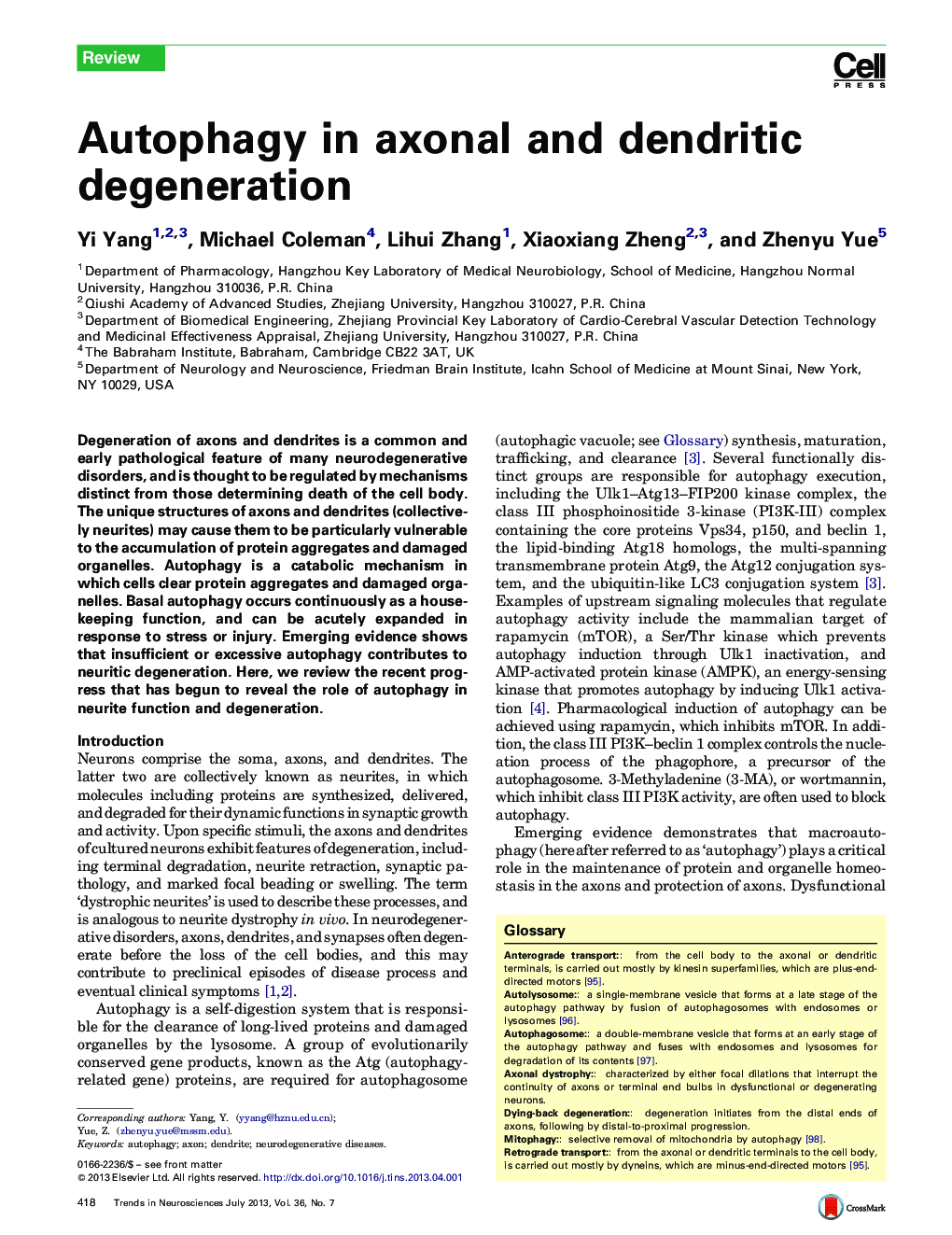| Article ID | Journal | Published Year | Pages | File Type |
|---|---|---|---|---|
| 4354436 | Trends in Neurosciences | 2013 | 11 Pages |
•Neuritic degeneration is a pathological feature of many neurodegenerative diseases.•Autophagy regulates protein and organelle homeostasis in axons and dendrites.•Insufficient or excessive autophagy contributes to neuritic degeneration.
Degeneration of axons and dendrites is a common and early pathological feature of many neurodegenerative disorders, and is thought to be regulated by mechanisms distinct from those determining death of the cell body. The unique structures of axons and dendrites (collectively neurites) may cause them to be particularly vulnerable to the accumulation of protein aggregates and damaged organelles. Autophagy is a catabolic mechanism in which cells clear protein aggregates and damaged organelles. Basal autophagy occurs continuously as a housekeeping function, and can be acutely expanded in response to stress or injury. Emerging evidence shows that insufficient or excessive autophagy contributes to neuritic degeneration. Here, we review the recent progress that has begun to reveal the role of autophagy in neurite function and degeneration.
